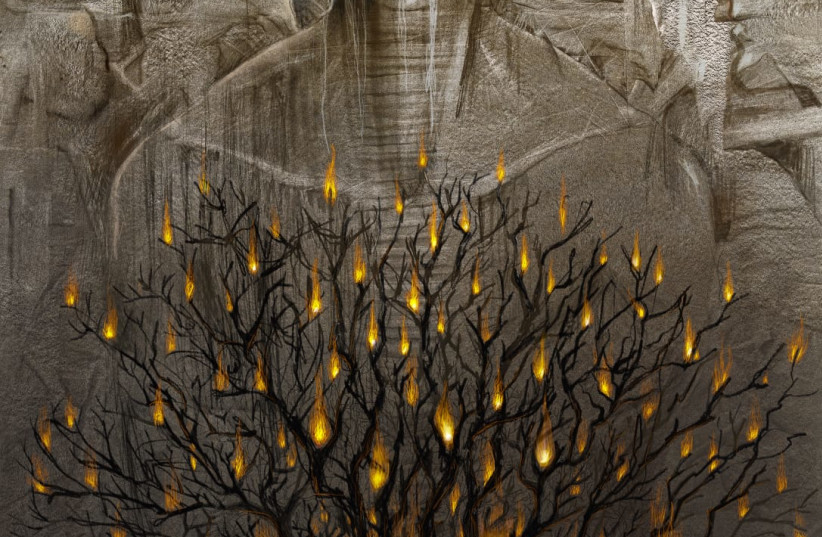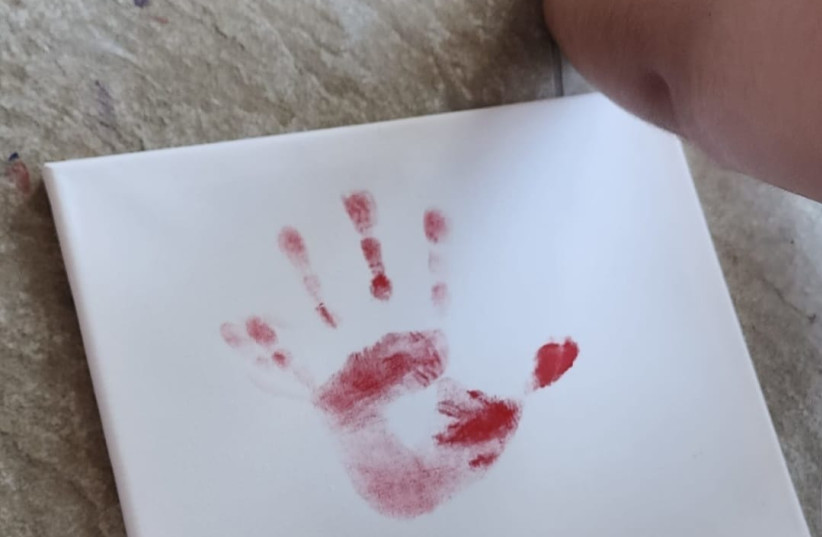Horrific images were plastered all over the media when Israeli communities along the Gaza border came under attack on October 7. For residents of these communities, the images will forever be etched in their minds.
For more stories from The Media Line go to themedialine.org
“When they rescued them, they had to go through a lot of corpses, they had to find their way [over] on mountains of corpses,” said Lee Leventer, an art therapist who has been working with the children of Be’eri since immediately after the attack happened.
“The soldiers told them to close their eyes, but a lot of them didn’t. And it comes up, the blood, the darkness,” she told The Media Line.
The Be’eri survivors are now finding shelter at the David Hotel in the Dead Sea area. As they try to cope with the situation as a community, Leventer seeks, with her art therapy, to help the children of the kibbutz express their feelings so that they can start healing after surviving what no child should ever have to see.
“Every time a kid wants to make art, I … find a corner in the hotel, open my suitcase and they can create,” she said. “Their creations are incredible. They tell a lot. They tell a story and something inside them is set free when they are telling that story. For some of them, it is the only media they can talk through.”

When describing her therapy sessions, Leventer spoke about a girl who was given a white canvas and paints of many colors. However, she chose to use only the red color, paint her hand with it, and mark it on the white canvas.

A different girl, Leventer said, “asked for a lot of colors, so I brought her like 20 different colors, colors that glow in the dark—and she took only the black color and painted the whole canvas black.”
Not only children are having a hard time expressing their experiences. Adults are also explaining through art what their words cannot.
A language without words
Helena Dan and Gennady Skoserev are two artists from Kibbutz Be’eri. They too are painting out their trauma.
“I don’t think there are words in any language to explain what happened, to describe what happened. But emotionally, I don’t know, it’s like yelling. Whether it could be seen in art or not, it’s an earthquake,” Dan told The Media Line.
“The whole situation is [nonsensical]. Something that could never happen, happened. And still, the brain does not agree to take it. It is impossible; it’s just a bad dream,” she continued.
Leventer noted that many of the children do not even cry. “It’s even hard to cry because how can the mind perceive this cruelty? How can a child handle losing both their parents? Seeing them killed, seeing the horrors, the abuse of the bodies of their families,” she said.
But art is a tool to channel all these unexplainable feelings—and a savior for many of the survivors, especially the children.
“It’s a language they speak so they can tell the story without telling the story,” noted Leventer, adding that, in addition to that fact, children also open up to speak while they are creating an artwork.
“They paint and they talk. Like: Can I get the pink color? and then they say: Do you know my house got burned down yesterday and everything I have … Can you see the heart I just painted? Isn’t it beautiful? Do you know my father died on Saturday? They open up to art and they talk to me and then I can talk to them about it: how are they sleeping, are they eating, what do they need?”
For Dan, art helps her liberate her spirit. But at the same time, it also makes her deal with bitter feelings that the mind had locked inside to protect itself.
“It became much harder because my feelings were squeezed and frozen inside and they went out and it was even harder,” she said, describing the feeling of painting for the first time after the massacre.
After allowing herself to paint again, she continued, “It became even more complicated because the gates are open, and I’m taken by it.”
Adults manage to better understand what is happening inside their minds. But children have no tools to deal with such an overwhelming experience.
Leventer says that among the children of the kibbutz, she can see different responses to the trauma. “Some children don’t want to eat, don’t want to leave their mother, don’t want to leave their room. Some children act angry, they want to throw stuff, and they are angry at the world.”
On the other hand, she continued, some kids are dissociated from what they are feeling. “It [was] so cruel, that the mind cannot capture what happened. It’s a massacre. Those children experienced a massacre,” Leventer said.
This is a community that has faced various insecure situations, but none like this.
Skoserev has lived at Be’eri for decades. For a long time, he told The Media Line, “we have been suffering about what happens around us, rockets ... and somehow, we are already used to that. But what happened this time is a disaster.”
“There was a Holocaust already, and now this, again, another holocaust. Just stop hatred,” Dan added at last.
The Jerusalem Post and OneFamily are working together to help support the victims of the Hamas massacre and the soldiers of Israel who have been drafted to ensure that it never happens again.
